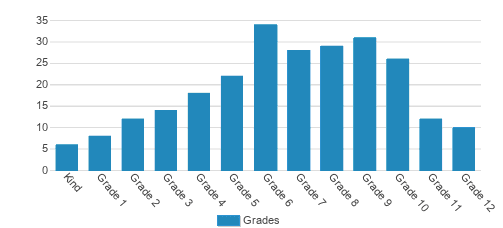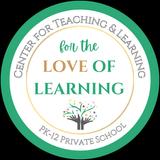Extraordinary Education Center is a unique alternative to traditional education.
The center offers supplemental 'a la carte' classes in all core subjects as well as enrichment classes and extracurricular activities for families who desire to homeschool.
The center also partners with the local community college to offer dual credit courses to students.
Classes meet on a university-style schedule 2 days per week.
Quick Stats (2025)
- School Type: Alternative School
- Grades: Kindergarten-12
- Enrollment: 250 students
- Yearly Tuition: $4,000
- Acceptance rate: 100%
- Average class size: 8 students
- Application Deadline: None / Rolling
- Source: National Center for Education Statistics (NCES)
Top Rankings
Extraordinary Education Center ranks among the top 20% of private schools in Texas for:
Category
Attribute
Affordability
School Overview
School Type
Religious Affiliation
Grades Offered
Grades Kindergarten-12
Year Founded
2006
School Calendar
Student Body
Total Students
250 students
Student Body Type
Co-ed
Students by Grade

Academics and Faculty
Total Classroom Teachers
30 teachers
Student : Teacher Ratio
8:1
National avg.: 13:1
% Faculty w/Advanced Degree
20%
Average Class Size
8 students
Tuition and Acceptance Rate
Admission Deadline
None / Rolling
Yearly Tuition Cost
Acceptance Rate
100%
National avg.: 85%
Admissions Director
Elise Eaton
School Notes
- The Extraordinary Education Family Learning Center is a 501c3 non-profit organization in the north Houston area. EEC offers a private, parent-directed educational program for K-12th students that allows parents to be more involved in their childs education while also supporting the familys values. EEC recognizes that each child is an individual and has unique educational needs. By involving the entire family in the learning process, the child's educational, social, emotional and spiritual needs can be considered as a whole.
- While not technically a school, EEC offers many educational opportunities including academic classes such as math, science and English, enrichment classes such as art, cooking and programming, and extracurricular activities such as robotics, mock trial, and young entrepreneurs club. The campus also includes a native wildlife habitat, an organic garden and a makerspace which is open to the community. In addition, the center partners with the local community college to offer dual credit classes such as Biotechnology and Microbiology.
- EEC is founded on the belief that parents have both the right and the responsibility to direct the education of their children. Families who participate in EEC classes are considered home schools, and parents retain the primary control and responsibility for their childs education. The program is not accredited, yet numerous students have gone on to win prestigious awards and have been admitted to all types of colleges. Instructors are selected based on their passion, experience and dedication, and the organization is supported cooperatively by parents serving in areas of need.
- Courses are offered a la carte on a university style schedule. This allows families to customize their childs learning experiences according to the child's needs and interests. Families pay tuition only for the courses they take, and parents are free to seek other options for subjects not taken at EEC. Christian values are taught and supported, yet the program is open to all.
- Students at EEC are not held back nor pushed ahead simply because of their chronological age. Students benefit from intellectual challenge in areas of giftedness while the same students may need extra help in areas of weakness. Class placement is a team decision between parents, teachers and administration based on many factors including the childs skill level, maturity, and interest.
- Classes are taught in multi-age/multi-grade groups. Many concepts are accessible to a range of ages which makes narrow age grouping unnecessary. Narrow age grouping can also limit social development. Skills-based subjects such as math are grouped by ability rather than age.
Source: National Center for Education Statistics (NCES)
Frequently Asked Questions
How much does Extraordinary Education Center cost?
Extraordinary Education Center's tuition is approximately $4,000 for private students.
What schools are Extraordinary Education Center often compared to?
Extraordinary Education Center is often viewed alongside schools like Central Baptist Academy by visitors of our site.
What is the acceptance rate of Extraordinary Education Center?
The acceptance rate of Extraordinary Education Center is 100%, which is higher than the national average of 84%.
When is the application deadline for Extraordinary Education Center?
The application deadline for Extraordinary Education Center is rolling (applications are reviewed as they are received year-round).
School Reviews
Endorse Extraordinary Education Center. Endorsements should be a few sentences in length. Please include any comments on:
- Quality of academic programs, teachers, and facilities
- Availability of music, art, sports and other extracurricular activities
- Academic or athletic awards
Recent Articles

A Parent's Guide To Understanding High School Teaching Methods
This comprehensive guide helps parents navigate the various teaching methods used in today's high school classrooms. By understanding these approaches, you'll be better equipped to support your teen's learning journey, communicate effectively with teachers, and create a complementary learning environment at home.

February 08, 2025
Social Emotional Learning: Education's Hidden SymphonyA musician's perspective on Social Emotional Learning reveals how this educational framework orchestrates success through five essential emotional competencies.

January 24, 2025
A Roadmap For Starting A Private SchoolUse this roadmap as a set of talking points with your trusted mentors and professionals to start the private school of your dreams. You're not alone. Over the years, hundreds of folks like you have had the same dream. From Quintilian to Maria Montessori to Lucy Madeira Wing, visionary educators have established schools to teach according to their beliefs and methodologies.
















